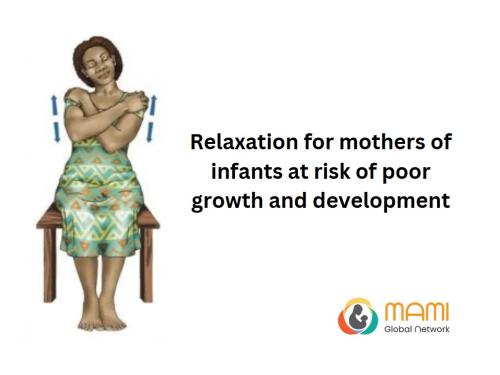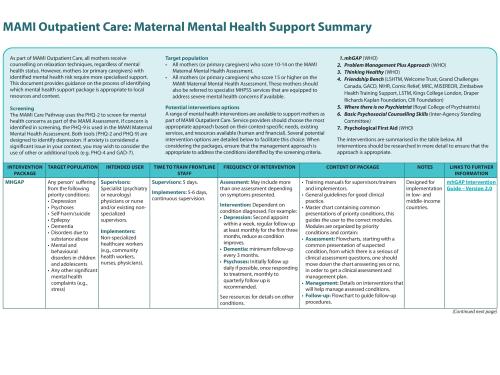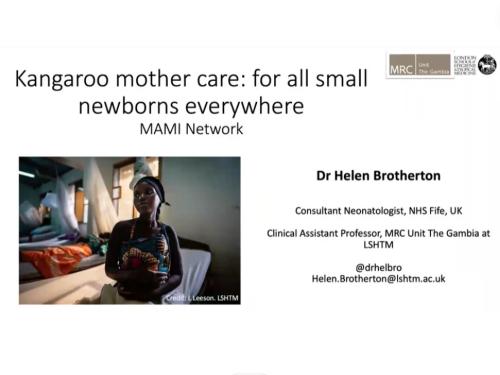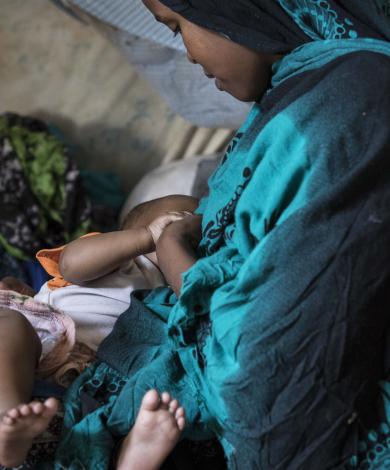The MAMI Care Pathway applies an integrated care pathway approach to the management of at-risk infants under 6 months and their mothers within systems of health. It frames the planning and provision of follow through care of infants who are born vulnerable or become so in early life until they reach 6 months of age, and their mothers. It especially addresses primary and community level care provision, but can also be used for in-patient care.
This approach provides a framework and implementation resources to help put policies into practice and strengthen their delivery, including WHO 2023 guideline on prevention and management of wasting, Integrated Management of Childhood Illness (IMCI), well-baby care and maternal health and nutrition.
Key elements of the MAMI Care Pathway Package
These sample forms can be used to reinforce or adapt existing country formats. In exceptional circumstances, they can be used as a starting template where materials do not exist, such as implementation research or where existing services have been severely disrupted, such as in acute emergency.
- MAMI Guide (complete package for planning and training purposes)
- MAMI Rapid Screening Guide
- MAMI Care Pathway: Overview and Who, What, Where
- MAMI Assessment Form (including feeding and maternal mental health assessment)
- MAMI Enrolment and Follow-up Form
- MAMI Counselling Cards and Support Actions Booklet
[For examples of country adaptations refer to the MAMI Evidence pages]
Additional considerations

Relaxation for mothers

MAMI outpatient care maternal mental health support summary

Kangaroo mother care: for all small newborns everywhere by Dr Helen Brotherton
Materials for training
Training needs will be highly context specific. Wherever possible, training should apply and build on local protocols and resources and use existing capacities. Embedding MAMI Care Pathway components within IMCI training is recommended wherever possible. For additional information, read:
Materials for monitoring and evaluation
Indicators to monitor and evaluate care processes and outcomes of infants under 6 months should ideally be embedded within government data systems. Interim standalone or complementary data collection in programmes and research should contribute and not duplicate existing systems.
Guidance developed by Save the Children for use in their programmes is available here.
Join the MAMI networks
Join the MAMI Global Network and MAMI Implementers’ groups (anglophone and francophone) to ‘learn by doing’ together
Examples of applying the MAMI Care Pathway

Implementing care for vulnerable infants under 6 months of age and their mothers: Pakistan
Highlighting the feasibility of integrating the MAMI Care Pathway into a tertiary hospital with minimal additional resources.

Implementing care for vulnerable infants under 6 months of age and their mothers: Yemen
Many infants in Yemen are born vulnerable or become so within their first six months, increasing their risk of poor growth, ill health, and mortality.

Implementing care for vulnerable infants under 6 months of age and their mothers: South Sudan
The pilot generated valuable lessons for integrating the MAMI Care Pathway into existing health services, but this integration in practice was challenging.




